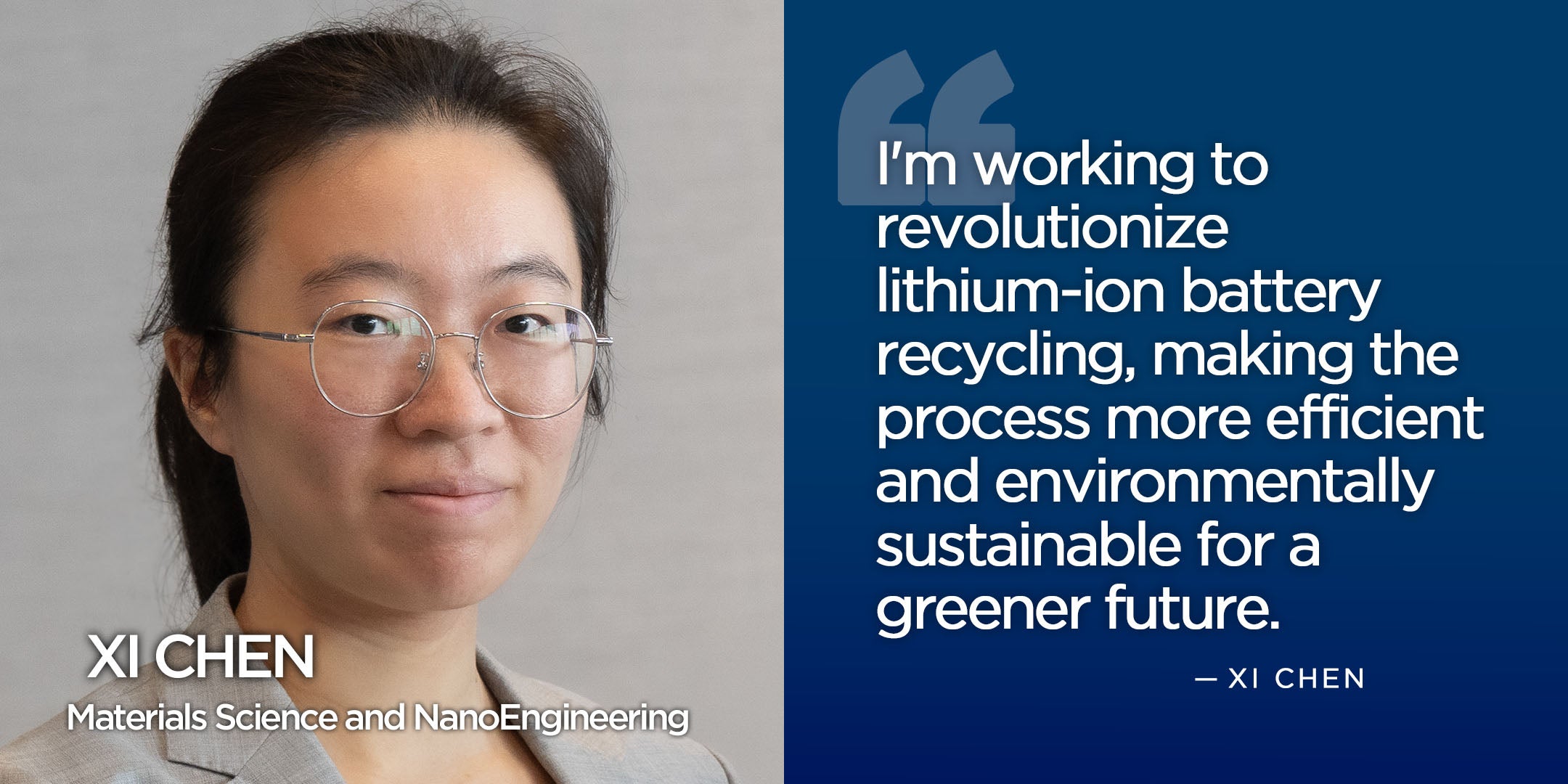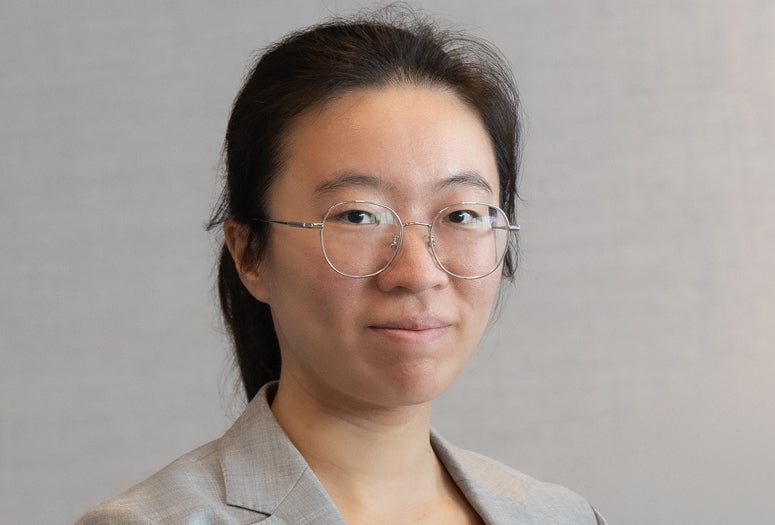
Meet Xi
Department: Materials Science and NanoEngineering
Year in Graduate School: 1
Expected Graduation Date and Degree: May 2028, PhD
Hometown: Zhenjiang, Jiangsu, China
Q: What is the overall problem your thesis will help to address?
A: My research focuses on improving the recycling process for lithium-ion batteries to make it more efficient and environmentally friendly. This is important because as the use of electric vehicles and renewable energy grows, we need better ways to manage the waste from these batteries and recover valuable materials like lithium.
Q: Can you provide more scholarly depth to your project?
A: This project aims to develop sustainable hydrometallurgical methods, particularly using microwave-assisted techniques, for selective lithium recovery from LiB cathodes. By investigating the leaching mechanisms and kinetics in deep eutectic solvents (DES), we seek to optimize lithium extraction processes, improving both efficiency and environmental impact.
Q: Are there any products from your work so far that you'd like to highlight?
A: So far, we have completed two projects on commercial-grade LIB recycling, which compare different hydrometallurgical routes and precipitation methods. We have worked in close association with different non-profits and industries, such as Underwriters Laboratory Research Institute (ULRI) and Lithem Co. These manuscripts are in the preparation stage and will be submitted soon for publication.
Q: Is there any funding you would like to acknowledge?
A: Funding by ULRI and Lithem Co. for commercial-grade LIB recycling.
Q: What do you see as the most pressing sustainability challenge the world is facing?
A: The most pressing sustainability challenge the world faces today is the efficient and scalable recycling and reuse of materials to support a circular economy. This is crucial for reducing environmental impact, conserving natural resources, and managing waste — especially as we transition to more sustainable energy and technology systems.

